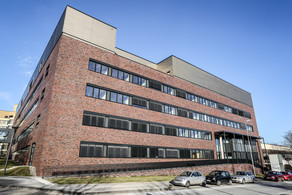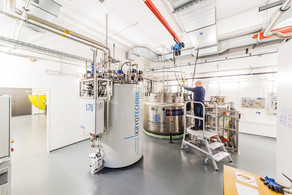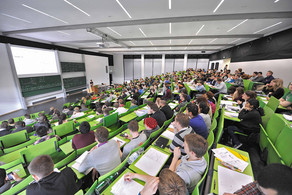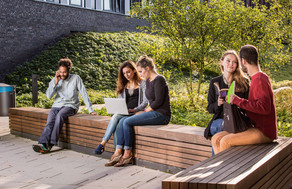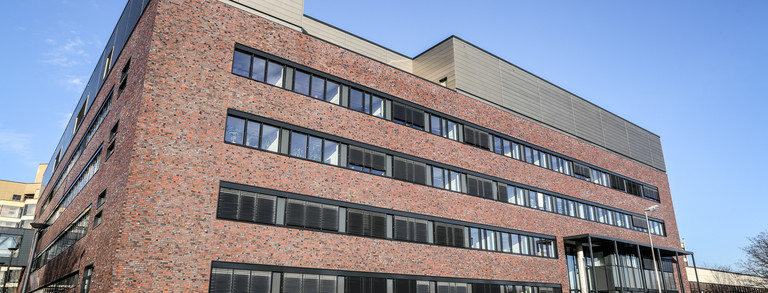Ultracold quantum gases: a versatile experimental platform for exploring quantum many-body physics
- Colloquium

Ultracold quantum gases: a versatile experimental platform for exploring quantum many-body physics
When atomic gases are cooled into the Nanokelvin regime by laser cooling and evaporative cooling, they become quantum degenerate and form a Bose-Einstein condensate or a Fermi gas, depending on the choice of atomic species. Due to the exquisit control over such systems, ultracold quantum gases serve as pristine model systems for quantum simulation allowing fresh insights into quantum many-body systems. By loading the atoms into optical lattices formed by interfering laser beams one can emulate the electrons in solid-state systems and study current topics such as topological phases [1].
An important feature of these systems is the possibility to optically image the individual particles in a quantum many-body system, visualizing e.g. the number squeezing of exactly one particle per site in a Mott insulator [2], but also extracting exotic correlations. I will present our recent work in which we used matter-wave optics to reach an effective resolution well below the lattice spacing [3] and even measure the local phase of the wave function in order to study the quasi long-range phase coherence. I will conclude with an outlook on the exciting possibilities offered by ultracold quantum gases.
[1] C. Weitenberg & J. Simonet, Nature Phys. 17, 1342 (2021).
[2] J. Sherson et al., Nature 467, 68-72 (2010).
[3] L. Asteria et al., Nature 599, 571 (2021).





